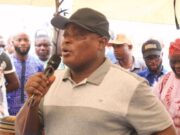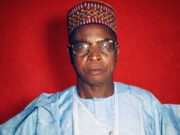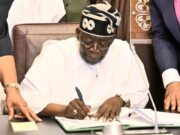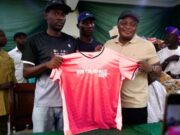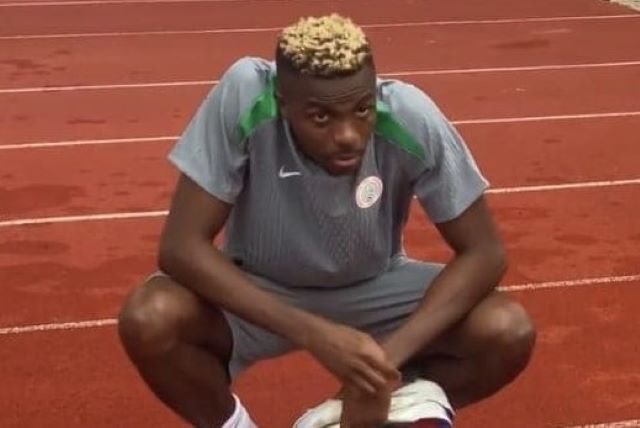Nigeria’s defeat to DR Congo in the 2026 World Cup Africa play-off final has triggered widespread frustration among fans, who have criticised the Super Eagles’ deepening dependence on Victor Osimhen after the striker was substituted early in the second half.
Osimhen, who was replaced by Akor Adams at halftime and with the match level at 1–1, left the pitch at a time when Nigeria still carried an attacking threat. His withdrawal was followed by a noticeably flat performance, as the team struggled to maintain urgency and incision in the final third. DR Congo eventually advanced to the intercontinental play-off after a 1–1 draw over 120 minutes and a 4–3 win on penalties.
The frustration that poured across social media was loud, emotional, and sharply focused on one point: without Osimhen, the Super Eagles collapse.
Musician Johnny Drille wrote, “No urgency from our team, and that was what Osimhen always brought to the game.”
Sports analyst Biola Kazeem added, “Not surprised we have struggled badly and offered absolutely no goalscoring threat since Osimhen came off. Our results and even performances in this series have been tied not only to his form but his very presence on the pitch. We are very much an Osimhen team.”
Investigative journalist Fisayo Soyombo posted, “The Super Eagles of Nigeria without Victor Osimhen were like tea without sugar. Once Osimhen left the field injured, Nigeria fell apart and stood absolutely zero chance.”
The sentiment was echoed by Adika, who wrote, “We are actually Osimhen FC, we are totally useless without him.”
Veteran sports journalist Calvin Onwuka referenced long-standing concerns. He wrote, “All of you who have spent the days and weeks after the Benin match to curse Finidi and Eguavoen, what you are watching now is what those coaches had to deal with in the absence of Victor Osimhen. So, endure or enjoy.”
JJ Omojuwa added, “I knew we were Osimhen FC, I didn’t realise it was this deep.”
Broadcaster Charles Anazodo described the situation as alarming. “We have a serious problem. So if Osimhen is unavailable, the team goes to sleep? The team has become unrecognisable,” he wrote.
Santos Akhilele praised the striker’s influence, saying, “Osimhen is such a leader. You can literally feel his presence, or a lack of it.”
Fola Olatunji-David remarked, “I have NEVER seen this thing in my life. If Osimhen isn’t on the pitch, we don’t know what to do.”
Another user, J9, captured the growing sense of resignation. “We can’t win any damn thing without Osimhen on the field. Too bad. Every single game we played without Osimhen, we lost. Well-deserved victory for DR Congo.”
Beyond emotion and opinion, the statistics over the past six years offer undeniable evidence of Nigeria’s reliance on their star forward.
In that period, only one Super Eagles coach has won a competitive fixture when Osimhen was either unavailable or played fewer than 30 minutes, Austin Eguavoen.
The last time any other coach achieved such a victory was in 2019, when Gernot Rohr guided Nigeria to a win over South Africa in the AFCON quarter-finals. Since that match, Nigeria have played 50 competitive games.
Osimhen has missed 12 of those fixtures and featured in the remaining 38.
During the matches he missed, Nigeria were handled by four different coaches Rohr, José Peseiro, Finidi George and Éric Chelle. None of them managed a competitive victory without the Galatasaray striker.
The record reflects a persistent pattern. Rohr lost 2–1 to Algeria in the semi-final of AFCON 2019 and later played a goalless draw against Sierra Leone when Osimhen was sidelined with a shoulder injury. Rohr was dismissed in December 2021 ahead of AFCON 2021.
Eguavoen stepped in and remarkably won all three of Nigeria’s group matches at AFCON 2021 without Osimhen.
When Peseiro took charge from May 2022 to March 2024, Nigeria again struggled without their leading forward. Osimhen’s hamstring injury during the 2026 World Cup qualifiers saw the team fail to defeat Lesotho and Zimbabwe. At AFCON 2023 in Ivory Coast, Osimhen played all seven matches as Nigeria finished runners-up.
Peseiro departed afterwards and Finidi George took over. He also failed to win any of the two matches Osimhen missed. Eguavoen later returned in an interim capacity and secured a 1-0 win against Libya without Osimhen, while the second leg of the double-header was awarded 3–0 in Nigeria’s favour.
Chelle, who later assumed the role, was unable to change the narrative. Nigeria did not win the only match Osimhen missed under him, the qualifier against South Africa, due to an ankle sprain.
This long-term pattern explains why alarm bells rang loudly the moment Osimhen was withdrawn against DR Congo.
The current qualifying campaign further reinforced the trend. Nigeria failed to win a single match until Osimhen made his first appearance in March 2025. His contributions were decisive throughout, including goals against Rwanda, Zimbabwe and Benin, an assist against Lesotho, and a brace in the play-off semi-final against Gabon.
In Rabat, Frank Onyeka gave Nigeria an early lead in the third minute before Meschack Elia equalised in the 32nd minute. Despite half-chances created by both sides in extra time, the match went to penalties, where Nigeria lost 4–3 after misses by Calvin Bassey, Moses Simon and Semi Ajayi.
The defeat ends Nigeria’s route to the 2026 World Cup through the African play-off and has magnified a long-standing debate that the Super Eagles appear unable to function without their talisman, and the country’s growing frustration reflects a broader fear that the team remains dangerously one-dimensional.
Credit: punchng.com

























